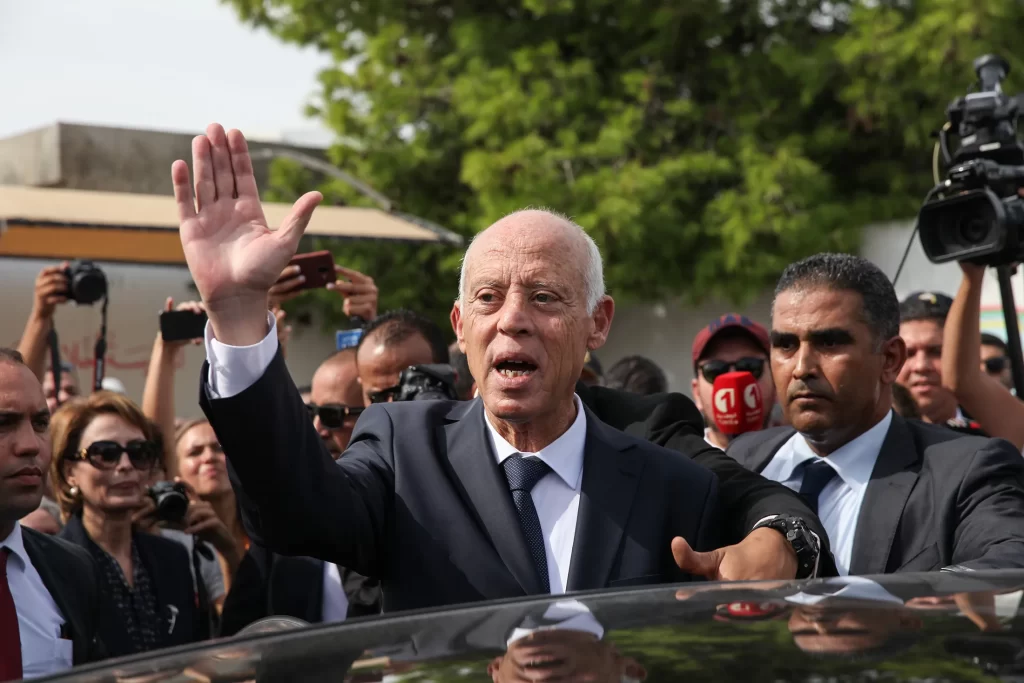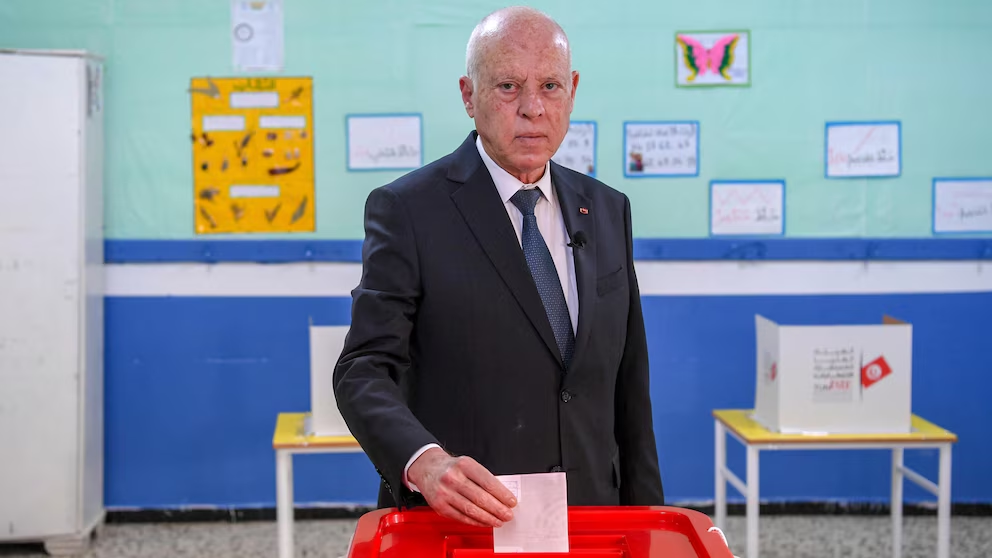Incumbent President Kais Saied is set to secure a second term in Tunisia’s presidential election with 89.2% of the vote, according to exit polls broadcast on national television Sunday night.

The election, marked by low voter turnout, saw Saied far outpacing his challengers. Imprisoned rival Ayachi Zammel is projected to receive 6.9% of votes, while Zouhair Maghzaoui trails with 3.9%, according to the independent polling group Sigma Conseil.
Tunisia’s electoral board, ISIE, reported that only 27.7% of eligible voters cast ballots, the lowest turnout for a presidential vote since the country’s 2011 revolution. This figure stands in stark contrast to the 45% turnout in the 2019 election.
“The vote’s legitimacy is undoubtedly tainted with candidates who could have overshadowed Saied being systematically sidelined,” said Hatem Nafti, a political commentator and author.
ISIE had barred 14 candidates from the race, citing insufficient endorsements and other technicalities. This move has fueled concerns about the election’s fairness and inclusivity.

Saied, speaking at his campaign office in Tunis, warned of “foreign interference” and pledged to “build our country and rid it of the corrupt and conspirators.”
The election comes three years after Saied’s controversial power grab in 2021, which saw him rewrite the constitution and crack down on dissent. Human rights groups have raised alarms about the detention of political figures and activists.
“Many fear that a new mandate for Saied will only deepen the country’s socioeconomic woes, as well as hasten the regime’s authoritarian drift,” said Middle East analyst Sarah Johnson.
As Tunisia grapples with this pivotal moment, the international community watches closely to see how Saied’s projected victory will impact the country’s democratic trajectory and its role as the lone democracy to emerge from the Arab Spring uprisings.
ISIE is set to announce preliminary election results on Monday, with final results expected in the coming days.



